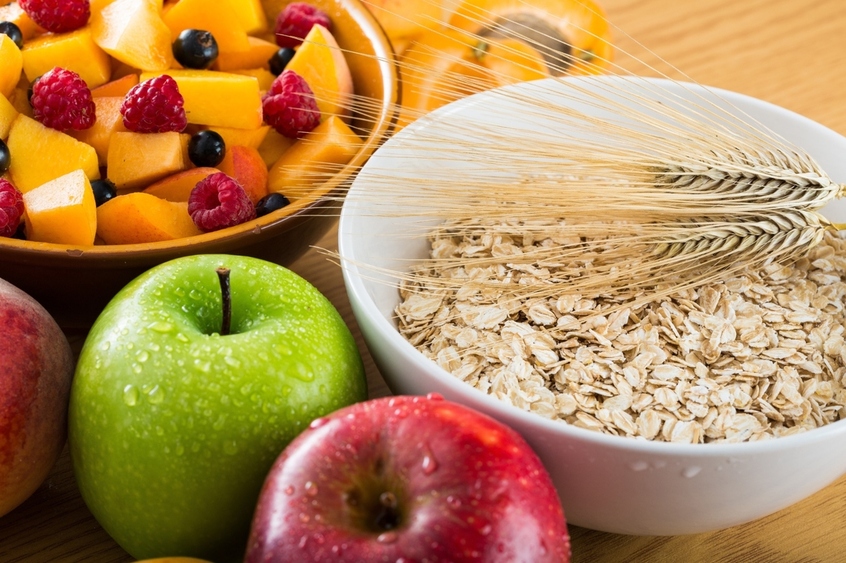
By Susan Bowerman
Susan Bowerman M.S., RD, CSSD, CSOWM, FAND is a registered dietitian and senior director at Worldwide Nutrition Education and Training, Herbalife Nutrition.
When it comes to men’s health and nutrition, many factors come into play. Because men tend to burn calories a lot faster than women do, it can be tempting to assume that as long as a man isn’t overweight, all is well and good.
Body weight, however, is only a part of the picture and shouldn’t be used as the sole metric of health. How much body fat you have, where that fat settles on your frame, and the overall quality of your diet all contribute to your well-being.
Guys are more likely to carry that excess weight around the middle, which is much more damaging to health than the fat that women tend to accumulate on their hips and thighs.
Pay attention to nutrient density
So, while keeping your weight down is key, you need to do it the right way. Nutrient density is all about packing the most nutrition into each bite. You can do this by focusing on healthy foods such as vegetables, fruits, lean proteins, and whole grains.
Here are four nutrients men should eat more of daily:
Fibre
High-fibre foods help you feel full, which can help keep weight in check. Soluble fibre also helps lower cholesterol levels, which is good for protecting your heart. Place emphasis on these high-fibre heart-healthy foods, including local fruits such as guava, papaya and mangosteen, vegetables like water spinach, mustard greens, broccoli and carrots), beans and whole grains (brown rice and oats).
Magnesium
Magnesium is a mineral that’s important for literally hundreds of functions in the body. By supplementing or consuming more magnesium-rich foods, you may be able to improve bone health and heart health. Good sources include leafy green vegetables like spinach, nuts, and whole grains.
Potassium
Many men also do not get enough potassium, which is important for nerve, heart, and muscle function. This mineral supports healthy blood pressure and is abundant in fruits, vegetables, and dairy products. Some recommended potassium-rich foods are tomatoes, bananas, beans, leafy greens, melons and yams.
Vitamin D
Finally, try to get more vitamin D, which helps to keep your bones and immune system strong. Vitamin D is found in fortified dairy products, fatty fish, egg yolks, and seafood. Malaysians can also leverage our sunny weather for sun exposure a few times a week to get your vitamin D. Look for seafood that’s low in fat and calories yet rich in heart-healthy omega-3 fatty acids. These should be on your menu at least a few times a week.
Prioritise your wellbeing
Get your health checked regularly
With our hectic lives, it can be easy to put off health needs, but prevention is key, and health screenings become more important as you get older. Schedule routine checkups with your doctor, and don’t forget dental and vision exams as well.
Exercise weekly
The Ministry of Health’s Pyramid of Physical Activity recommends 30-60 minutes of moderate-intensity aerobic physical activity or 15-30 minutes of vigorous-intensity aerobic physical activity, or a combination of both on at least five days a week.
Eat your breakfast
Set a goal of having a healthy meal a few mornings a week. If you don’t have time to sit down for breakfast, grab a carton of yoghurt and a piece of fruit, or whip up a protein shake with some milk and fruit and take it with you.
Find heathier options
If you tend to grab meals on the run during the day, think about packing your lunch a couple of days a week or preparing a home-cooked meal once or twice a week. If you tend to grab chips or other unhealthy foods the moment you are hungry or stressed, learn to practice mindful eating instead and think about putting more nutrient-dense foods into your body.
Take note of eating patterns
Lastly, try writing down what you eat for a couple of days. It’s the best way to come face-to-face with your eating habits – for better or for worse. There’s nothing quite like a good hard look at the skipped meals, the teh-tarik, or a severe shortage of fruits and vegetables to spark a diet makeover.
Also, don’t forget to take note of small wins and milestones as you get closer to your wellness goals.
* The views expressed herein are strictly the personal opinion of the writer and do not necessarily represent the views of YamChaTime.








